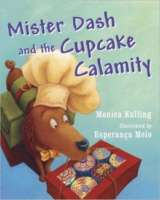
When Madame Croissant decides to open a bakery, the baking world is thrown into turmoil. Daphne, Madame’s granddaughter, helps with Mayor Chester Field’s order for five hundred cupcakes.

When Madame Croissant decides to open a bakery, the baking world is thrown into turmoil. Daphne, Madame’s granddaughter, helps with Mayor Chester Field’s order for five hundred cupcakes.
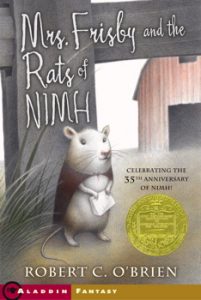 Mrs. Frisby, a widowed mouse with four small children, is faced with a terrible problem. She must move her family to their summer quarters immediately, or face almost certain death. But her youngest son, Timothy, lies ill with pneumonia and must not be moved. Fortunately, she encounters the rats of NIMH, an extraordinary breed of highly intelligent creatures, who come up with a brilliant solution to her dilemma. And Mrs. Frisby in turn renders them a great service.
Mrs. Frisby, a widowed mouse with four small children, is faced with a terrible problem. She must move her family to their summer quarters immediately, or face almost certain death. But her youngest son, Timothy, lies ill with pneumonia and must not be moved. Fortunately, she encounters the rats of NIMH, an extraordinary breed of highly intelligent creatures, who come up with a brilliant solution to her dilemma. And Mrs. Frisby in turn renders them a great service.
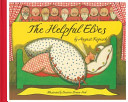
When the lazy people of Cologne go to sleep, the helpful elves do all their work. They measure and saw for the carpenter, knead and mix for the baker, carve and chop for the butcher, taste and pour for the winemaker, and snip and sew for the tailor. But no one ever sees them. Until one day the tailor’s wife becomes curious.
This classic picture book is based on a poem by August Kopisch (1799–1853), who specialised in re-telling popular legends. It is brought to life with humorous illustrations by Beatrice Braun-Fock (1898–1973).
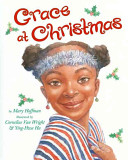
When her grandmother takes in a stranded family at Christmas, Grace is reluctant to share her favorite holiday with strangers, even though the visiting family includes a “real live ballerina.”

Clara’s grumpiness leads her mother to take her to a neighbor who is a curandera, or healer, and although she is puzzled by her “treatment,” Clara dutifully helps her neighbors, is kind to her siblings, and reads more books for a week.
Squish is just a little rabbit. But being little can lead to big problems. Sometimes Squish is hard to hear or see. (Which is how he got his name.) And no one notices him. But Squish notices things- especially when someone is about to get into trouble and needs help. Here is little Squish’s BIG chance.
Chirchir just wants to make herself useful like all her other family members. But she drops Mama’s water bucket, spills Kogo’s tea, and sends Baba’s potatoes tumbling down the hill. but each of their tasks proves too challenging for her.Isn’t there something that Chirchir does best?
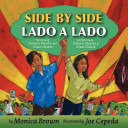
Every day, thousands of farmworkers harvested the food that ended up on kitchen tables all over the country. But at the end of the day, when the workers sat down to eat, there were only beans on their own tables. Then Dolores Huerta and Cesar Chavez teamed up. Together they motivated the workers to fight for their rights and, in the process, changed history. Award-winning author Monica Brown and acclaimed illustrator Joe Cepeda join together to create this stunning tribute to two of the most influential people of the twentieth century. Todos los dÍas, miles de campesinos cosechaban los alimentos que se servÍan en los hogares de todo el paÍs. Pero al terminar la jornada, cuando los campesinos se sentaban a comer, lo Único que habÍa en sus propias mesas era frijoles. Entonces, Dolores Huerta y CÉsar ChÁvez se unieron para motivar a los trabajadores a luchar por sus derechos y en el proceso, cambiaron el curso de la historia. La premiada autora Monica Brown y el aclamado ilustrador Joe Cepeda se unen para crear Éste impresionante tributo a dos de las personas mÁs influentes del siglo veinte.
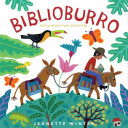
Luis loves to read, but soon his house in Colombia is so full of books there’s barely room for the family. What to do? Then he comes up with the perfect solution–a traveling library! He buys two donkeys–Alfa and Beto–and travels with them throughout the land, bringing books and reading to the children in faraway villages.
Featured in WOW Review Volume XII, Issue 3